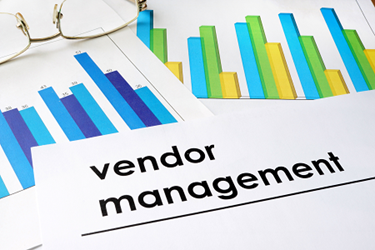How To Make Sure Your Foreign Vendors Are FDA Compliant — And Stay That Way
By Joy McElroy

Vendor selection is a serious process. Manufacturers are responsible for compliance from their selected vendors, and any violations by vendors can cause serious problems for the manufacturers. Choosing a foreign vendor is no different than choosing a domestic vendor; foreign vendors are held to the same FDA standards as domestic vendors. Manufacturers must have assurance that their foreign vendor will not be the source of major issues. As such, it is incumbent on manufacturers to ensure processes are in place to control outsourced activities and the quality of purchased materials.
Qualifying A Foreign Vendor
The FDA requires that all foreign vendors undergo a qualification process that is no different from that required for domestic vendors, including having SOPs in place for performing the qualifications. All vendors are required to meet the manufacturer’s quality expectations by aligning with the manufacturer’s quality management system. If a foreign vendor fails to meet the manufacturer’s quality standards, the vendor may be disqualified.
The process of qualifying a foreign vendor should incorporate quality risk management and include:
- Assessing prior to outsourcing operations or selecting material suppliers – this involves evaluating the suitability and competence of the other party to carry out the activity or to provide the material using a defined supply chain.
- Defining the responsibilities and communication processes in a written agreement
between the contractor (the manufacturer) and the vendor.
- Monitoring and reviewing the performance of the service provider or the quality of the material from the provider and identifying and implementing any essential improvements.
- Monitoring incoming ingredients and materials to ensure they are from approved sources using the agreed-upon supply chain
It is essential that the manufacturer select a and maintain sufficient oversight of the vendor’s operations to ensure that it is fully cGMP compliant. Regardless of whether a manufacturer relies on a contract facility, the manufacturer is responsible for assuring that drugs introduced into interstate commerce are neither adulterated nor misbranded.
Contracted Service Provider Activities
Foreign vendor contracted services may involve the vendor coming to the manufacturer’s facility to perform services. In these cases, the manufacturer must implement vendor management SOPs that include training vendor and company personnel to prevent mismanagement of vendors and the deviations that can result. The manufacturer must document all activities performed by the vendor and review and confirm them via an exit interview with the vendor. The manufacturer should decide what kind of vendor activities require prior QA authorization before proceeding. There should also be SOPs in place for documenting activities that could not be performed, as well as why and when they will be completed. The manufacturer should also identify any systematic issues that could impact other vendors coming to its site.Always review vendor SOPs for inadequacies. It is imperative to recognize in advance and mitigate the potential for miscommunication between the foreign vendor and the manufacturer. This can be accomplished through well-written, comprehensible vendor SOPs that will minimize the chance of misinterpretations and/or noncompliance. Manufacturers have to ensure that any “in-house” terminology, including the use of acronyms, is understood by the foreign vendor.

Make sure your QA and QC groups are audit ready. Learn how in Joy's webinar:
FDA Compliant QC and QA Practices: Creating a Perfect, Audit-Ready QMS
Auditing Foreign Vendors
Just as manufacturers audit domestic vendors, they must audit their foreign vendors to assure the vendors’ quality management systems and quality philosophies align with the manufacturer’s. Audits are used to review the vendor’s total quality system, to understand vendor capabilities, and to address issues needing corrective action or improvement.
Types Of Foreign Vendor Audits
There are four types of foreign vendor audits that manufacturers can perform to qualify their vendors:
- New vendor assessment
- Process/scheduled audit
- Development audit
- Verification/follow-up audit
New vendor assessments focus on getting a general overview of the vendor’s quality systems. A manufacturer should have a good idea of the vendor’s quality management system and how procedures and processes are carried out after this assessment. As part of this audit, the manufacturer should request a tour of the facility and review the company’s organizational chart and basic operational SOPs.
Process/scheduled audits use either a GMP- or an ISO-style audit checklist and are designed to review quality processes, procedures, and systems. This is an in-depth audit of the entire facility. When a manufacturer schedules an audit with the vendor, it then sends the vendor an audit plan, so the vendor can prepare for the audit. The schedule will include arrival time, a time for the opening meeting, a time for the facility tour, and a list of the documents to be reviewed. The audit plan allows the vendor to prepare for the audit and have the necessary documents and personnel in place, so the audit runs smoothly and efficiently. When scheduling the audit, the manufacturer should keep the vendor’s business in mind. The manufacturer is there to get a bird’s-eye view of the operation and to assess the quality of goods and services it will be receiving, not to tie the vendor up and hinder its production.
A development audit focuses on areas that need specific improvement and may address a particular corrective action. This audit is performed after a new vendor audit or a scheduled audit and typically occurs when observations have been made that need correcting. The vendor should have sent a CAPA to the manufacturer upon receiving an audit report. Once on-site, the manufacturer is there to observe that the CAPA has been implemented and that the issues are in the process of being resolved.
A verification or follow-up audit is performed to address the implementation of a corrective action to ensure compliance with regulations. During this type of audit, the manufacturer is on-site to ensure a corrective action has been implemented and is in compliance with cGMPs or the applicable ISO requirements. The manufacturer is there to observe the corrective actions only, not the vendor’s overall operation.
Proper Audit Conduct
Always schedule the audit by contacting the vendor. This gives the manufacturer an opportunity to observe how the foreign vendor responds to the proposed audit. Hesitation or a sense of unwillingness to schedule the audit by the vendor should be a red flag to the manufacturer; vendors should welcome the manufacturer and have no problems scheduling an audit. Make sure there are no language barriers or misunderstandings, and that the vendor understands the reason for the audit, before ending the call. Allow the vendor ample time to prepare for the audit. The vendor will need time to receive the audit schedule and to have the appropriate documents in place and readily available. It may also need time to have a translator on-site for the audit as well. Inform the vendor who the lead auditor will be and what resources will be required for the audit. It is important that the vendor know the audit is being performed as a qualification per the manufacturer’s policies, not as an attempt to find things wrong or to “catch them.” Let the vendor know the manufacturer views this as a partnership that is in place to benefit both parties.
Making Observations
Once on-site, be sure to take notes and ask questions for clarification. Don’t make assumptions; always ask if a situation seems noncompliant. If an observation is made, be sure to back it up with details, including what the noncompliance was, where it was observed, what time it was observed, and what personnel were involved. The vendor needs to know it is a legitimate observation. If an SOP or policy was violated, be sure to reference the document upon making the observation.
Closing The Vendor Audit
Once the manufacturer has completed the audit, a closing meeting should be held to make the vendor aware of any observations noted during the audit. It is also necessary to clarify any questions from the manufacturer to the vendor and vice versa. The manufacturer will want to share all the findings from the audit, including all observations, so the vendor is not surprised once it receives the audit report. This meeting is also a place to let the vendor know what it is doing right. End the meeting on a positive note by letting the vendor know that despite a few observations, there are good things being done and that the manufacturer expects CAPAs to be put in place and the observations to be resolved quickly.
Conclusion
Qualifying foreign vendors can be challenging due to language barriers and differences in philosophies. However, it is necessary because the manufacturer is ultimately responsible for the goods and services received from the vendor. Having SOPs and policies in place for interacting with foreign vendors is essential. Knowing what services will be performed by the vendor and implementing quality assurance assessments will ensure quality from the foreign vendor. Even though extensive travel may be involved, performing on-site audits of the foreign vendor is a necessity so the manufacturer can see for itself the actual activities carried out by the vendor at its site. This provides an opportunity to make observations and to request corrective actions before signing a contract for services. Performing an on-site audit is beneficial not only to the manufacturer receiving goods and services, but also to the vendor, as it helps both parties come together as partners and work together to improve and maintain compliance.
About The Author:
 Joy McElroy is the founder and principal consultant at Maynard Consulting Company, which provides services in validation engineering, process engineering, quality control, and quality assurance. McElroy began her career in the pharmaceutical industry performing environmental monitoring and sterility testing, and then moved into a supervisory role overseeing quality control. From there, she moved into quality assurance, and then into equipment qualification and process validation. In addition to consulting, she also develops and delivers webinars, on-site training, and seminars in areas such as technical writing, equipment qualification, cleaning validation, FDA audit preparation, and more.
Joy McElroy is the founder and principal consultant at Maynard Consulting Company, which provides services in validation engineering, process engineering, quality control, and quality assurance. McElroy began her career in the pharmaceutical industry performing environmental monitoring and sterility testing, and then moved into a supervisory role overseeing quality control. From there, she moved into quality assurance, and then into equipment qualification and process validation. In addition to consulting, she also develops and delivers webinars, on-site training, and seminars in areas such as technical writing, equipment qualification, cleaning validation, FDA audit preparation, and more.
McElroy earned her B.S. in zoology from North Carolina State University. You can reach her at joy@maynardconsultingcompany.com or connect with her on LinkedIn.
